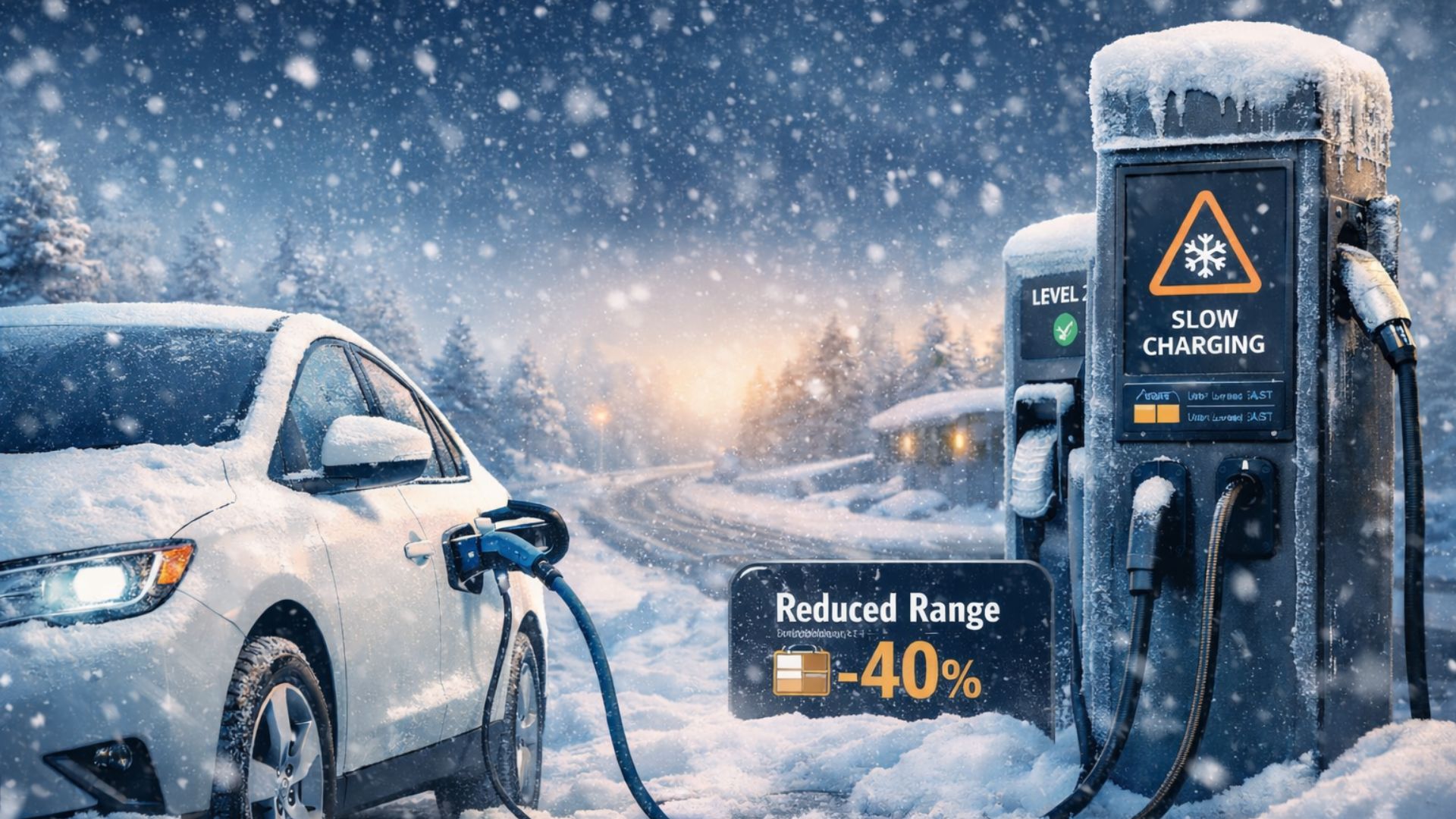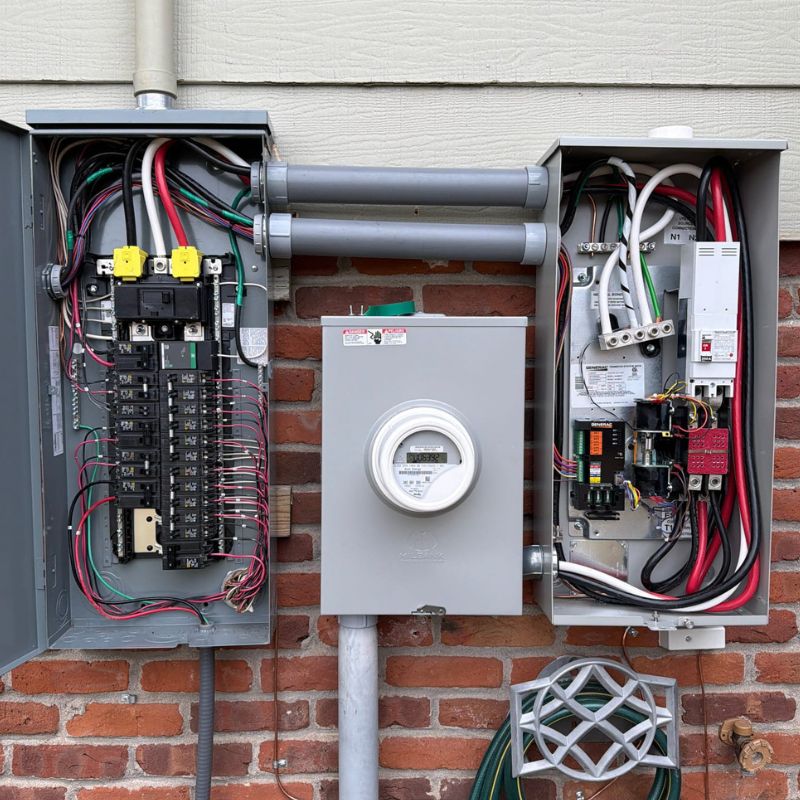Contents
- The Real Cost of Ownership for an Electric Vehicle
- What Does “Total Cost of Ownership” Mean?
- 1. Purchase Price and Incentives: The Upfront Investment
- 2. Charging and Electricity Costs: The Real “Fuel” Economy
- 3. Maintenance and Repairs: Simple Systems, Fewer Surprises
- 4. EV Battery Life and Technology: How Long Does an EV Battery Last?
- 5. Energy Efficiency and Driving Range
- 6. Insurance, Registration, and Resale Value
- 7. The Environmental and Lifestyle Edge
- 8. The Long-Term Math: EV vs. Gas Car
- FAQs: Total Cost of Ownership for an Electric Vehicle
- The Bottom Line: EV Ownership Pays Off
Trusted Colorado Electricians
The Real Cost of Ownership for an Electric Vehicle
Switching to an electric vehicle (EV) is not just about going green — it is about saving green, too. But what does the total cost of ownership for an electric vehicle really look like over time?
If you are a Colorado homeowner weighing whether an EV is worth it, this guide will break down everything — from electric vehicle costs and rebates to battery life, charging, and maintenance savings — so you can make an informed decision.
What Does “Total Cost of Ownership” Mean?
The total cost of ownership is the full picture of what it costs to own and operate a vehicle over its lifetime — typically 8 to 10 years. For electric cars, that includes much more than the sticker price.
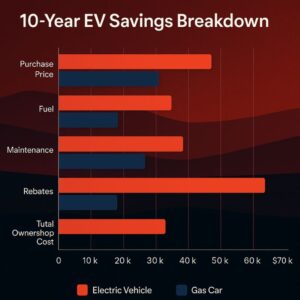
You will need to consider:
- Purchase price and available federal tax credits
- Installation of a home EV charger
- Charging costs and electricity rates
- Maintenance and repair expenses
- EV battery life and potential replacement
- Resale value and insurance
- Long-term fuel and service savings
When you add it all up, the EV cost of ownership often ends up lower than that of a gas-powered car — especially when you factor in Colorado’s strong EV rebates and growing network of fast charging stations.
1. Purchase Price and Incentives: The Upfront Investment
While the initial price of an electric car can be higher than a comparable gas vehicle, the gap continues to narrow every year.
Average EV Cost in 2026
Most new electric vehicles (EVs) range between $40,000 and $60,000, depending on size and brand. Affordable options like the Nissan Leaf or Chevy Bolt make EV ownership accessible, while Tesla models and Rivian trucks cater to premium buyers.
Federal and Colorado Incentives
Colorado is one of the most EV-friendly states, offering substantial rebates to offset electric vehicle costs:
- Federal Tax Credit: Up to $7,500 for eligible new electric vehicles
- Colorado State EV Rebate: Up to $5,000 for new EV purchases and $2,500 for used EVs
- Utility Rebates: Programs like Xcel Energy’s offer up to $500 for installing a home charger
Combined, you could save over $12,000 off the total cost of ownership for an electric vehicle.
The Electricians are certified EV charger installers in Colorado and can help homeowners install chargers that qualify for all available rebates.
** Please note these rebates can change often. Be sure to check with your local government for most up-to-date rebates.
2. Charging and Electricity Costs: The Real “Fuel” Economy
Instead of filling up at a gas station, EV owners fuel up at home using clean, renewable energy sources.
Electricity vs. Gas
Charging an EV in Colorado costs about $0.13 per kWh. Since most electric vehicles (EVs) use around 30 kWh per 100 miles, that equals roughly $4 to $5 per 100 miles — compared to $12–$15 in gasoline for the same distance.
Over a year, an average driver traveling 12,000 miles could save $800–$1,200 in fuel costs.
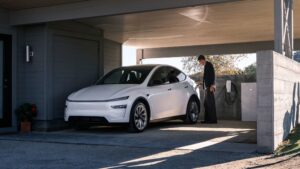
Fast Charging Stations
Colorado continues to expand its fast charging station network, making road trips easier for EV owners. While home charging is the cheapest option, fast chargers are convenient for quick top-ups, usually adding 150–200 miles of driving range in under 30 minutes.
3. Maintenance and Repairs: Simple Systems, Fewer Surprises
EVs are famously low-maintenance because they have far fewer moving parts than a gas-powered car. The absence of an internal combustion engine, transmission, and exhaust system means fewer breakdowns and less wear.
EVs rely on electric motors and lithium-ion batteries, both of which are designed for long-term durability. You will never need:
- Oil changes
- Transmission service
- Spark plug or belt replacements
According to AAA, EV owners spend about $950 less per year on maintenance compared to traditional vehicles. Brake wear is also reduced thanks to regenerative braking systems.
4. EV Battery Life and Technology: How Long Does an EV Battery Last?
This is the question every potential EV buyer asks:
How long does an EV battery last?
Battery Chemistry and Thermal Management
Most modern EVs use lithium-ion batteries with advanced battery chemistry designed to reduce battery degradation over time.
Sophisticated thermal management systems regulate temperature to maintain optimal battery performance during hot Colorado summers and cold winters.
Battery Replacement Costs
Replacing an EV battery can cost between $6,000 and $15,000, depending on size and brand. However, with improvements in cell design and charge cycle efficiency, most owners will never need to replace one within the normal ownership period.
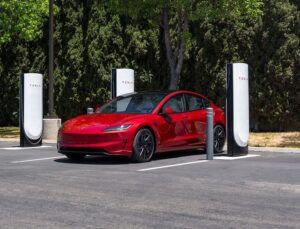
5. Energy Efficiency and Driving Range
Not all EVs are created equal. Models like the Nissan Leaf offer about 150–200 miles of driving range, while Tesla models easily reach 300+ miles on a full charge.
Range depends on factors like:
- Speed and driving style
- Climate and terrain
- Use of heating or A/C systems
- Battery capacity and thermal management system
Still, for most Colorado homeowners who commute locally, even shorter-range electric vehicles (EVs) are more than sufficient for daily driving.
6. Insurance, Registration, and Resale Value
Insurance for electric cars can be slightly higher (by about 10%) due to the cost of battery components and advanced electronics.
However, those costs are usually offset by fuel and maintenance savings.
EV registration fees in Colorado are lower than in many states, and the resale value of electric vehicles continues to rise as the market grows.
Well-known Tesla models and Hyundai EVs, for example, maintain 60–70% of their value after five years.
7. The Environmental and Lifestyle Edge
Owning an electric vehicle is about more than saving money — it’s about improving your lifestyle.
- Zero tailpipe emissions reduce pollution
- Quieter rides make every trip more relaxing
- Charging at home saves time and stress
- Potential solar integration can make charging nearly free
Pairing your EV with a home solar system in Colorado allows you to drive on sunshine — reducing both your carbon footprint and your electricity bill.
8. The Long-Term Math: EV vs. Gas Car
Here’s a look at a 10-year ownership comparison between an average gas-powered car and a comparable electric vehicle:
That’s over $21,000 in long-term savings, plus the peace of mind of lower maintenance and clean energy.
FAQs: Total Cost of Ownership for an Electric Vehicle
How long does an EV battery last?
On average, electric car batteries last 12 to 15 years. Modern lithium-ion batteries have improved battery chemistry and thermal management systems to reduce battery degradation and extend charge cycles.
Are electric vehicles cheaper to own long term?

Yes. While the initial price may be higher, the total cost of ownership over time is lower due to reduced maintenance, cheaper charging, and generous rebates.
How much can I save on fuel?
EV owners can save up to $1,200 annually on fuel compared to a gas-powered car — depending on driving habits and local electricity rates.
Do electric vehicles lose range over time?
A small amount, yes. Over several years, batteries may lose about 5–10% of their original capacity due to battery degradation, though most maintain excellent performance well beyond warranty periods.
The Bottom Line: EV Ownership Pays Off
When you look at the total cost of ownership for an electric vehicle, the math speaks for itself. Lower electric vehicle costs, generous federal tax credits, and long-term savings make EVs a smart investment — both financially and environmentally.
If you’re considering having an electric car at home, The Electricians can help you get started with safe, professional EV charger installation anywhere in Colorado.
Schedule Your Free Estimate Today
Go electric with confidence. The Electricians are Colorado’s trusted experts for Tesla, Rivian, Ford Lightning, and all electric vehicle charger installations.
Schedule your free estimate today and start saving for the long term.
Related Posts
If you enjoyed reading this, then please explore our other articles below:
Electrical Panels in Colorado Homes
Many homes across Colorado, especially in Denver, Aurora, Lakewood, and Colorado Springs, were built with electrical panels that were never designed for modern power demands. Cold winters, EV charging, home offices, and newer appliances place added stress on older panels and breakers.
If you are noticing frequent breaker trips, buzzing sounds, or planning an upgrade like an EV charger or heat pump, a licensed Colorado electrician can evaluate whether your panel needs repairs or a full power upgrade.


